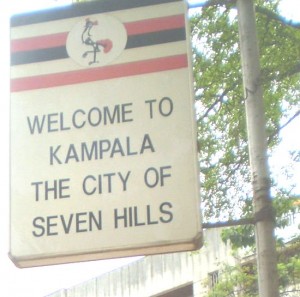Kampala remains cheapest in East Africa for expatriates
June 22—Mercer, a global consulting firm in health, wealth and careers, this week published its latest Cost of Living Survey ranking Kampala as one of cheapest cities in the world for expatriates ahead of Nairobi, Kigali, and Dar es Salaam. A similar survey earlier this year showed that foreigners find life in Kampala pleasant.
According to Mercer, these rankings indicate differences in cost of living factors affecting expatriates in popular assignment destinations. Out of the 209 listed cities with the costliest at the top, Kampala came in at 186. Nairobi is ranked at 111; Kigali, 147 and Dar es Salaam at 164.
However, Cape Town in South Africa, surprisingly came in at 199 while the Ethiopian capital, Addis Ababa is ranked 136th.
The top five most expensive cities are Luanda, Hong Kong, Tokyo, Zurich and Singapore. Meanwhile the least expensive are listed as Tunis, Bishkek in Kyrgyzstan; Skopje, Macedonia; Windhoek, Namibia and Blantyre the commercial capital of Malawi.
The survey finds that factors like instability of housing markets and inflation for goods and services contribute to the overall cost of doing business in today’s global environment. For an expatriate, staying in Kinshasa at 18th and Lagos at 29th, continues to be a considerable strain on the pocket.
Mercer’s authoritative survey is one of the world’s most comprehensive, and is designed to help multinational companies and governments determine compensation allowances for their expatriate employees. New York(ranked 9th) is used as the base city and all cities are compared against it.
Currency movements are measured against the US dollar. The survey includes over 400 cities across five continents and measures the comparative cost of more than 200 items in each location, including housing, transportation, food, clothing, household goods, and entertainment.
Ilya Bonic, the Senior Partner and President of Mercer’s Career business said, “While historically mobility, talent management, and rewards have been managed independently of one another, organizations are now using a more holistic approach to enhance their mobility strategies. Compensation is important to be competitive and must be determined appropriately based on the cost of living, currency, and location.”
Ilya Bonic, the Senior Partner and President of Mercer’s Career business said, “Globalization of the marketplace is well documented with many companies operating in multiple locations around the world and promoting international assignments to enhance the experience of future managers.”


 African Heads of state head to South Korea next week for Summit talks
African Heads of state head to South Korea next week for Summit talks
 Trading leads as main source of income for Ugandans
Trading leads as main source of income for Ugandans
 New leadership for bankers’ umbrella as total assets top $12 billion
New leadership for bankers’ umbrella as total assets top $12 billion
 Brussels Airlines to announce Nairobi service
Brussels Airlines to announce Nairobi service
 SITA promises enhanced travel experience after Materna acquisition
SITA promises enhanced travel experience after Materna acquisition
 Saudia’s 105 aircraft order stretches A320neo lead over rival Max
Saudia’s 105 aircraft order stretches A320neo lead over rival Max
